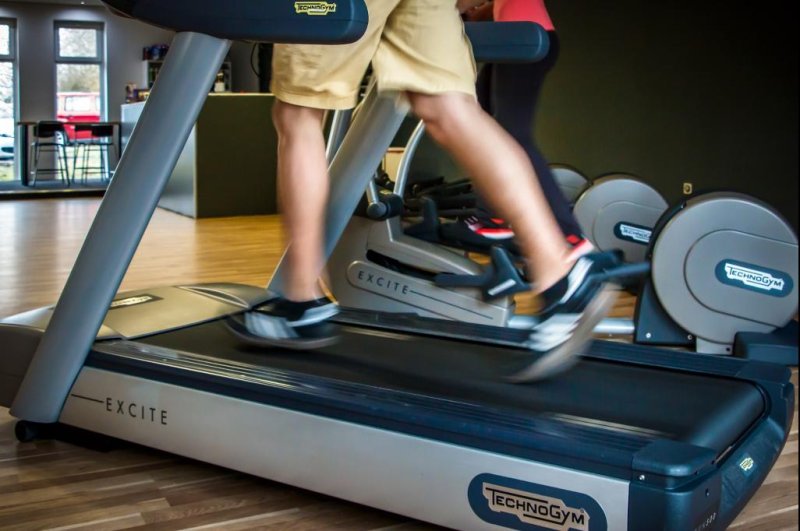Researchers linked walking speed on a treadmill to the number and length of hospitalizations of heart patients, finding that walking can help reduce both, according to a study conducted in Europe. Photo by
profivideos/pixabay
April 23 (UPI) -- Heart patients who walked briskly were hospitalized less often, according to a study in Europe.
Over three years, researchers followed 1,078 hypertensive patients who were a median age of 64, with 85 percent of participants also having coronary heart disease and 15 percent having valve disease. The findings were presented this month at the European Society of Cardiology congress and published in the European Society of Cardiology congress in Munich, Germany.
The researchers found the walking speed of 1 kilometer, or about two-thirds of a mile, on a treadmill was inversely related to hospitalization in patients.
"The faster the walking speed, the lower the risk of hospitalization and the shorter the length of hospital stay," Dr. Carlotta Merlo, a researcher at the University of Ferrara in Italy, said in a press release. "Since reduced walking speed is a marker of limited mobility, which has been linked to decreased physical activity, we assume that fast walkers in the study are also fast walkers in real life."
Of participants in the study, 359 were classified as slow walkers at 2.6 kilometers per hour, compared with 362 intermediate walkers at 3.9 km per hour and 357 fast walkers at 5.1 km per hour.
Their hospitalizations and length of hospitalizations over the next three years were recorded.
"We did not exclude any causes of death because walking speed has significant consequences for public health," Merlo said. "Reduced walking speed is a marker of limited mobility, which is a precursor of disability, disease and loss of autonomy."
Of the slow walkers, 51 percent had at least one hospitalization compared to 44 percent of the intermediate walkers and 31 percent of the fast walkers.
The average length of hospital stay for each patient was 23 days for slow walkers, 14 for intermediate walkers and nine days for fast walkers.
For each 1-kilometer-per-hour increase in walking, researchers observed a 19 percent reduction in the likelihood of being hospitalized over four years. Fast walkers had a 37 percent lower likelihood of hospitalization than slow walkers.
"Walking is the most popular type of exercise in adults," Merlo said. "It is free, does not require special training, and can be done almost anywhere. Even short, but regular, walks have substantial health benefits."
In another study released in March, walking for at least 40 minutes several times per week helped reduce the risk of heart failure by almost 25 percent among 89,270 post-menopausal women during the 14-year period from 1991-2005.















